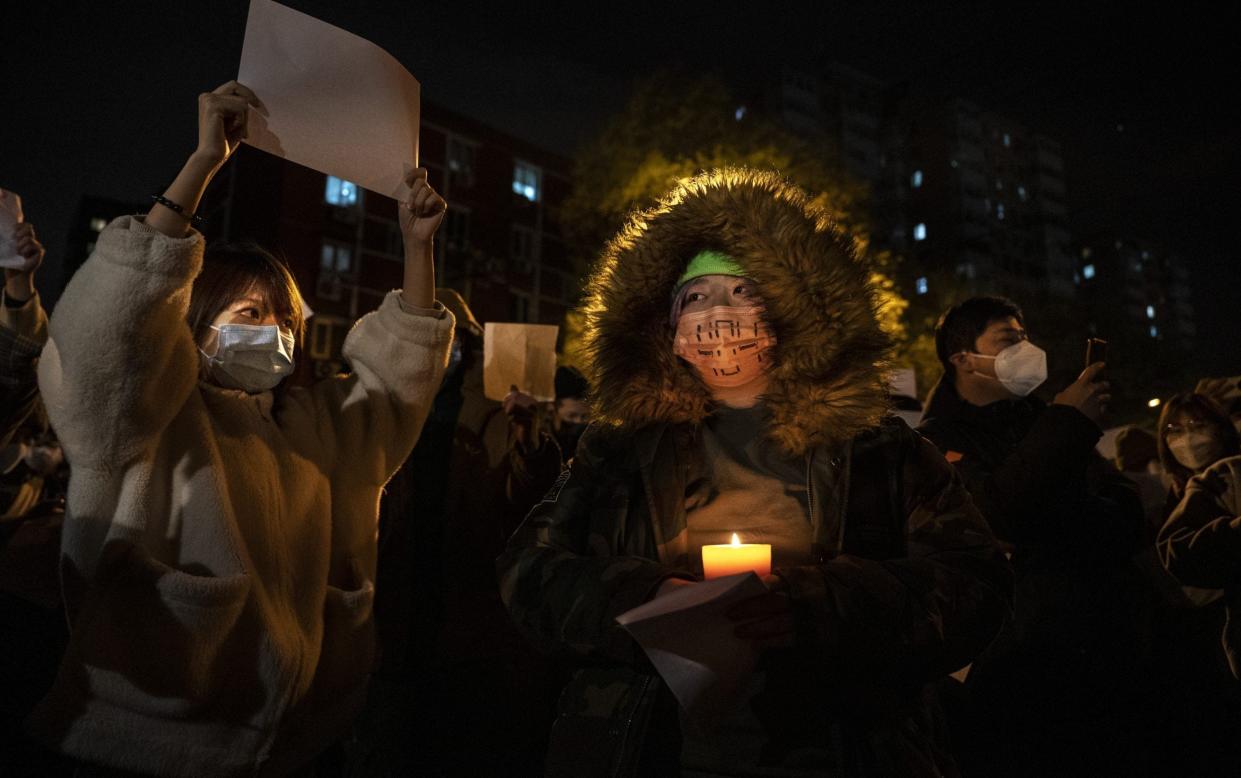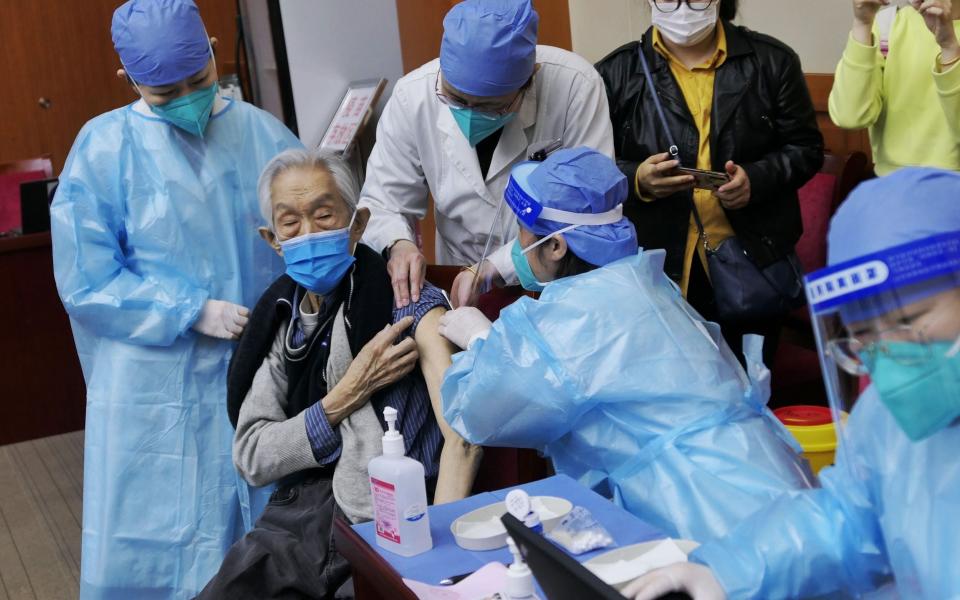Germany urges China to end lockdowns with Western vaccines

China is being urged to consider the West's superior vaccines to better protect its population and bring an end to the government's controversial zero Covid policy.
Anti-lockdown demonstrations swept across the country over the weekend, during which protesters confronted police, criticised China's strict Covid measures and even demanded President Xi Jinping's resignation.
As daily infections reach record levels and new analysis shows that millions of unprotected people could die if zero Covid is abandoned, officials and health experts have encouraged China to embrace the Western approach to vaccination.
On Monday, the chief spokesperson for the German government suggested that China should use the mRNA vaccines produced by BioNTech/Pfizer and Moderna, which offer high levels of protection and have allowed most countries outside of East Asia to drop all coronavirus restrictions.
“Europe and Germany have had very good experience with administering mRNA vaccinations,” Steffen Hebestreit told a press briefing. He added that German Chancellor Olaf Scholz had “made this clear” to Chinese officials during a recent visit to the country.
China is instead continuing to rely on its own home-produced vaccines, which are based on older technology and do not offer the same protection against severe disease as the West's Covid jabs.
Discussions have been held between German and Chinese health officials about sharing vaccine technology, but so far it's only been agreed to offer the mRNA jab manufactured by Pfizer and BioNTech, based in Mainz, to Germans living in China.
Earlier in the pandemic, China also failed to negotiate a deal with Moderna to secure the intellectual property behind the US firm's Covid vaccine.
The Chinese are developing their own mRNA vaccines but have yet to roll them out to the public. One China-made mRNA vaccine, designed by Walvax, was approved for use in Indonesia in late September but hasn't been licensed within China itself.
Professor Yanzhong Huang, a senior fellow for global health at the Council on Foreign Relations, said Indonesia's approval of the Walvax jab should have been “an opportunity to brag about, but that’s not the case. They’re not being enthusiastic about it.”

Xi Chen, an associate professor of health policy and economics at Yale University, said the West's vaccines offered “a major solution” to China's current Covid woes.
“The government has been working on this, but that’s difficult as they’re not only searching for the product but the property rights,” he added.
Health experts say the implementation of zero Covid is unlikely to end until vaccine uptake among China's elderly improves. Official data from early November shows that just 66 per cent of over-80s are double jabbed, while only 68 per cent of over-60s have been boosted.
In light of these immunity gaps, between 1.3 and 2.1 million lives could be at risk if China lifts its zero-Covid policy, according to new research from Airfinity, a UK-based data analysis firm.
Efforts are underway to increase coverage: health authorities across China have implemented vaccine mandates, offered free health insurance and ordered community volunteers to knock on the doors of hesitant local residents.
But Prof Chen said “it’s unlikely things will get better for the next half of the new year”. He added: “There’s little discussion about an exit strategy, not just with vaccination but preparing hospital beds, antiviral drugs, and communicating to the people that they do not need to be panicked about the virus.”
Protect yourself and your family by learning more about Global Health Security

 Yahoo Movies
Yahoo Movies 
